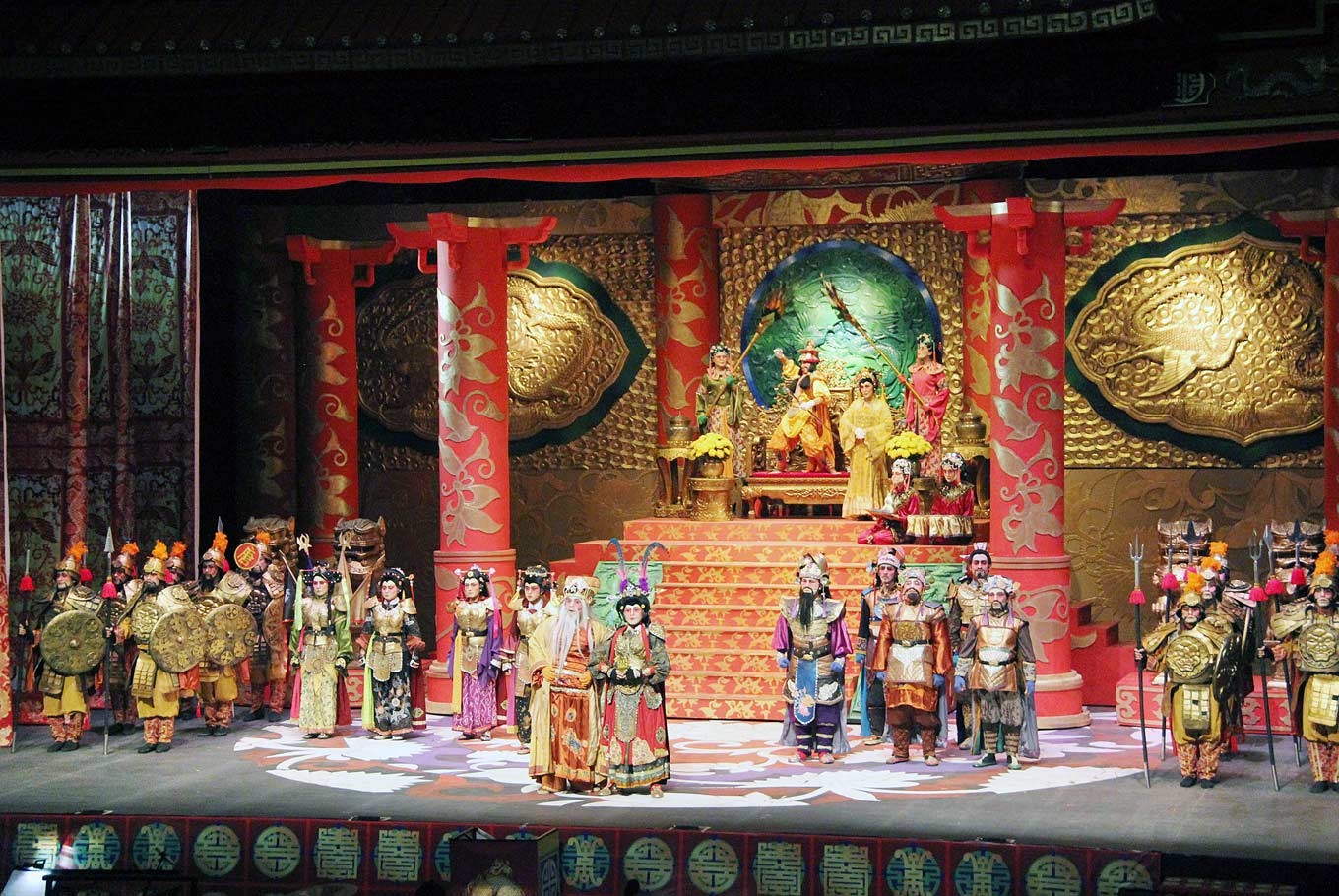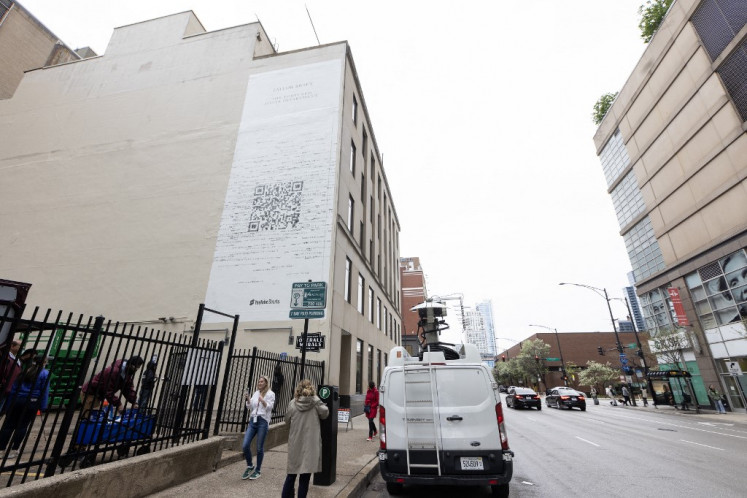Sie Jin Kwie's epic end
The story is adapted from a medieval Chinese story written by Tio Keng Jian, who lived between 1271 and 1368. It made its way into Indonesian literature in 1894.
Change Size
 Stage presence: Teater Koma, in collaboration with the Bakti Budaya Djarum Foundation, is scheduled to perform the play Sie Jin Kwie Against Western Demons at Taman Ismail Marzuki, Central Jakarta, on Nov. 10 to 19. (JP/Rifky Dewandaru)
Stage presence: Teater Koma, in collaboration with the Bakti Budaya Djarum Foundation, is scheduled to perform the play Sie Jin Kwie Against Western Demons at Taman Ismail Marzuki, Central Jakarta, on Nov. 10 to 19. (JP/Rifky Dewandaru)
T
he final installment of the Sie Jin Kwie epic play comes to a close, with Teater Koma troupe providing an amazing display and showing respect to the art and the cultural elements depicted.
The troupe previously presented three chapters of this play: Sie Jin Kwie in 2010, Sie Jin Kwie Kena Fitnah (Sie Jin Kwie Gets Falsely Accused) in 2011 andSie Jin Kwie Di Negara Sihir (Sie Jin Kwie in the Land of Magic) in 2012.
Sie Jin Kwie Menyerbu Barat (Sie Jin Kwie Attacks the West) is the final installment, running from Nov. 10 to 19. It ends the series in spectacular fashion and has met with acclaim. Director Nano Riantiarno described the final installment as the episode that ties up all loose ends.
“Sie Jin Kwie is not done yet before this one. His mortal enemy has not yet been defeated. It cannot end until the Tang Kingdom has no more enemies,” he said.
The story is adapted from a medieval Chinese story written by Tio Keng Jian, who lived between 1271 and 1368. It made its way into Indonesian literature in 1894.
Nano’s efforts to blend the legend with elements of drama, wayang golek(wooden puppet theater) and Chinese-Javanese wayang paid off as they could support each other under one giant production. Once again, long-time fans of Teater Koma can enjoy the play’s grand presentation, where movements, dialogue, costumes and music come to life on stage.
The concluding performances of the Sie Jin Kwie quadrilogy at Taman Ismail Marzuki, Central Jakarta, were an amalgam of tradition, fusing ancient Chinese legend and tone alongside a surprising wayang performance, which further enhanced the accessibility and interactivity of the play.
It was clearly a lively night. If the play had simply presented the main story of ancient Chinese warriors and their respective countries going into battle, the night might have ended up rather bland. Instead, with the humorous Javanese wayang sections, Teater Koma showed that its performances and its material is accessible to all walks and all cultures of Indonesian life.
Twenty-two wars were referenced in this play, and the audience could enjoy as many as 23 songs.
Peppered with Javanese humor, intertwined with the backdrop of ancient China and subtly making topical political references, such as the upcoming 2019 presidential election, the wayang part stole the limelight.
It provided huge comic relief, detailing the exploits of war from the soldiers’ perspective. While not entirely central to the story, the jokes and the wayangmovements were enjoyable enough, even for children who might not understand some of the jokes.
But this does not mean the performances of Ade Firman Hakim as General Sie Teng San or Rangga Riantiarno as Yo Hoan are not to be admired. Tuti Hartati as the tough general Hwan Lie Hoa stood her ground among her male counterparts, with her character emerging as the most powerful, most logical and most graceful on the stage.
The set itself was rather grand. Massive red pillars and massive thrones evoking an ancient Chinese castle were moved on and off the stage with minimal effort. A team of warriors marched in unison to the fictional battle in which they were to die, with a projected discipline not unlike the clay terracotta warriors.
As the more than four-hour performance paced itself to the end, the Sie Jin Kwie quadrilogy ended with the real conclusion that Teater Koma is probably the finest theater company that Indonesia has at the moment. Going strong since 1977, its performances have been consistent in showcasing the best of Indonesian culture with its own unique method and flair.
“Teater Koma’s latest play basically teaches us about the virtues of heroism and devotion to our country. The company has also demonstrated an exceptional devotion to Indonesian arts by consistently producing inspirational material,” Bakti Budaya Djarum Foundation program director Renitasari Adrian said.









